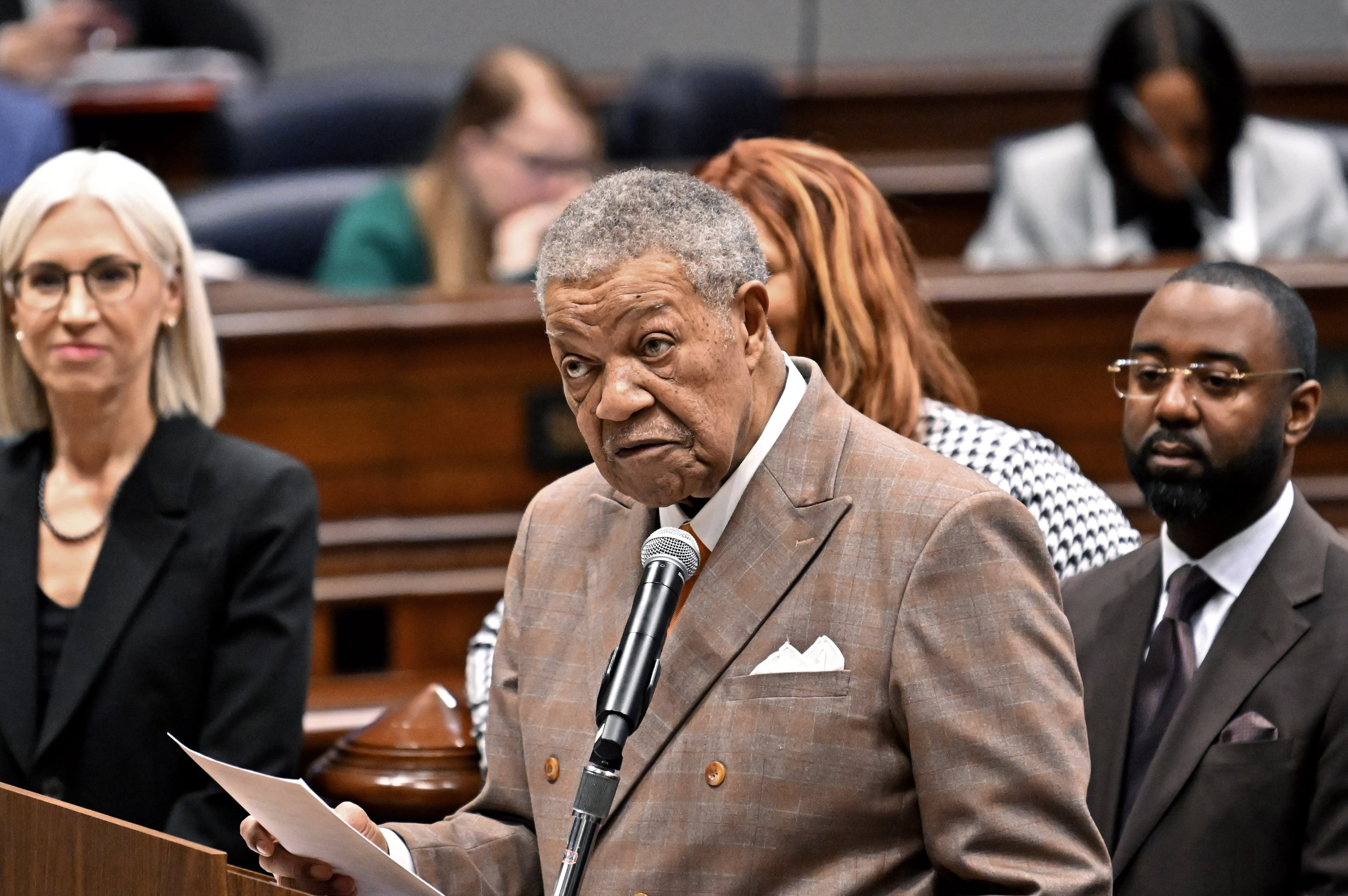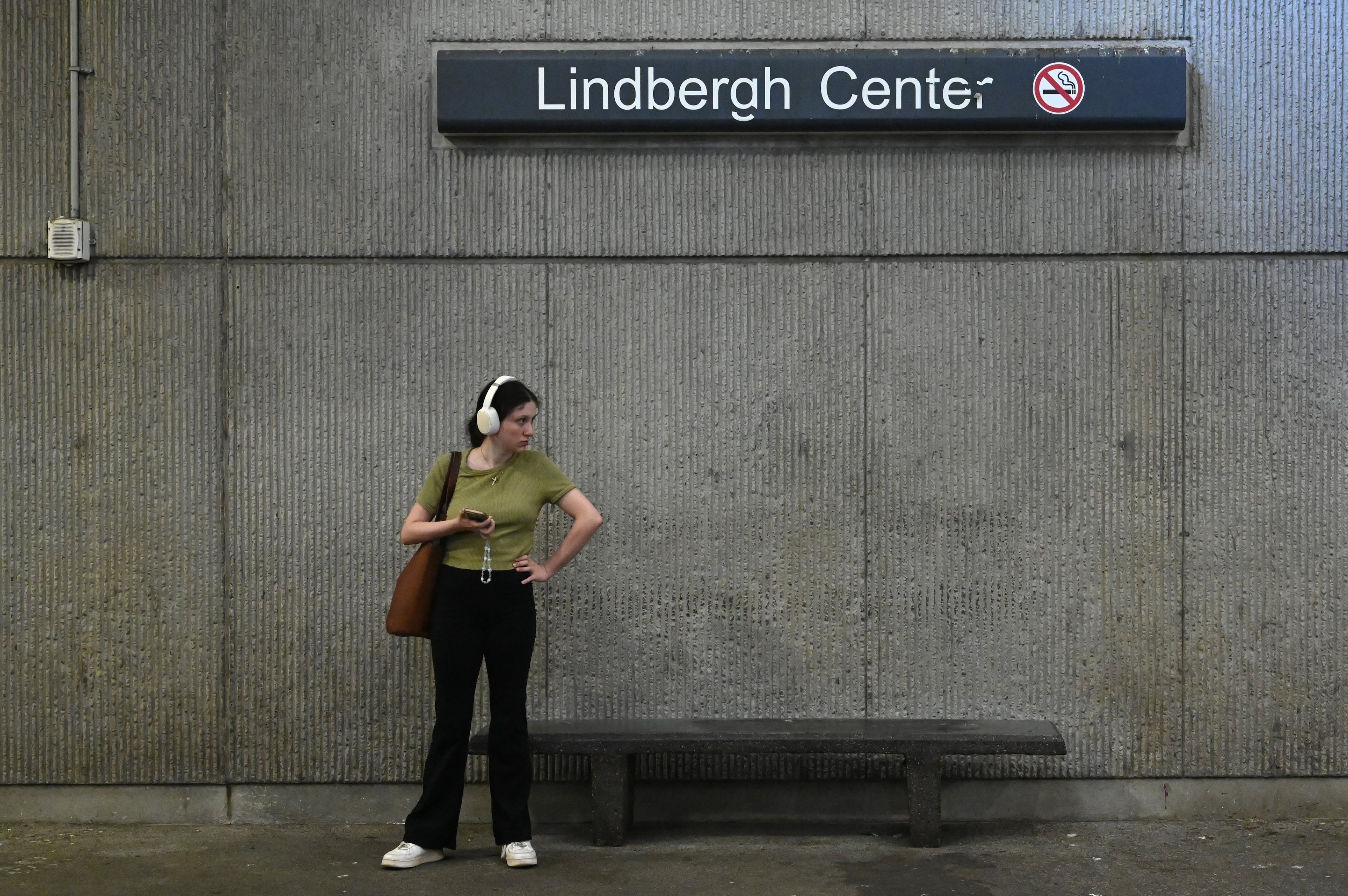Lewis gets nation’s highest civilian honor

WASHINGTON -- John Lewis first visited the White House and President John Kennedy in 1963 as a 23-year-old son of sharecroppers intent on changing the world.
He would go on to help do just that -- at sit-ins in Nashville, at bus stops in Rock Hill, S.C. and on the Edmund Pettus Bridge in Alabama, when he was nearly beaten to death by police on a fateful, hate-filled day that changed the course of the civil rights movement and later became known as Bloody Sunday.
Nearly 50 years later, Lewis -- now Rep. Lewis of Atlanta -- was back at the White House on Tuesday, one of 15 recipients of the presidential Medal of Freedom.
"When parents teach their children what is meant by courage, the story of John Lewis will come to mind," President Barack Obama said in presenting Lewis with the nation's highest civilian honor for his work as a civil rights leader who promoted nonviolent protests.
Other recipients include former President George H.W. Bush, poet Maya Angelou, financier Warren Buffett and sports stars Bill Russell and Stan "The Man" Musial.
"To receive this honor, it's unreal, it's unbelievable," Lewis said in an interview later, speaking quietly with typical humility. "I accepted it on behalf of countless individuals who were beaten, jailed -- those who died in the struggle."
Lewis, who will turn 71 next Monday, grew up in rural Alabama.

He first visited Washington in May 1961, when he and a small but growing group of "Freedom Riders" boarded buses and traveled through the South to try and integrate bus service for blacks.
Two years later, Lewis, Martin Luther King Jr. and other civil rights leaders would visit President Kennedy on the afternoon of King's iconic March on Washington. Lewis is the last surviving keynote speaker who was with King on the steps of the Lincoln Memorial that day on Aug. 28, 1963. In his speech, Lewis would sharply criticize Kennedy for not doing more to protect blacks from discrimination and civil rights workers from violence. He would later become close friends with Kennedy's brother, Robert, and other members of the Kennedy family.
Lewis was chairman of the Student Nonviolent Coordinating Committee during much of the civil rights movement, where he organized fellow college students and other young Americans to protest Jim Crow discrimination laws and organized black Americans to vote.
A Democrat, Lewis was first elected to Congress in 1986. Now in his 13th term, he is the longest-serving Georgian currently in the House.
Receiving the medal from the nation's first black president -- Obama during his inauguration told Lewis it was because of him and other civil rights leaders that he was able to get elected -- was especially moving for Lewis, he said later.
"It means everything," said Lewis, who during the tense and historic 2008 Democratic Presidential Primary supported Obama's opponent, then Sen. Hillary Clinton, for president.
"If somebody told me one day I would be standing in the White House, and an African American president presenting me the Medal of Freedom, I would have said, "Are you crazy? Are you out of your mind?" he said. "It's an impossible dream."
Tuesday's ceremony attracted a sizeable contingent of Atlantans to the White House to witness the event. Atlanta Mayor Kasim Reed was there, as was Atlanta Falcons owner and Home Depot co-founder Arthur Blank.
Accompanying Lewis were three of his brothers, Samuel, Grant and Freddie, his son John Miles, and Atlanta political and public relations strategist Tom Houck.
Lewis’ wife, Lillian who does not usually travel from Atlanta, was not present, but watched the ceremony on television, according to an aide.


